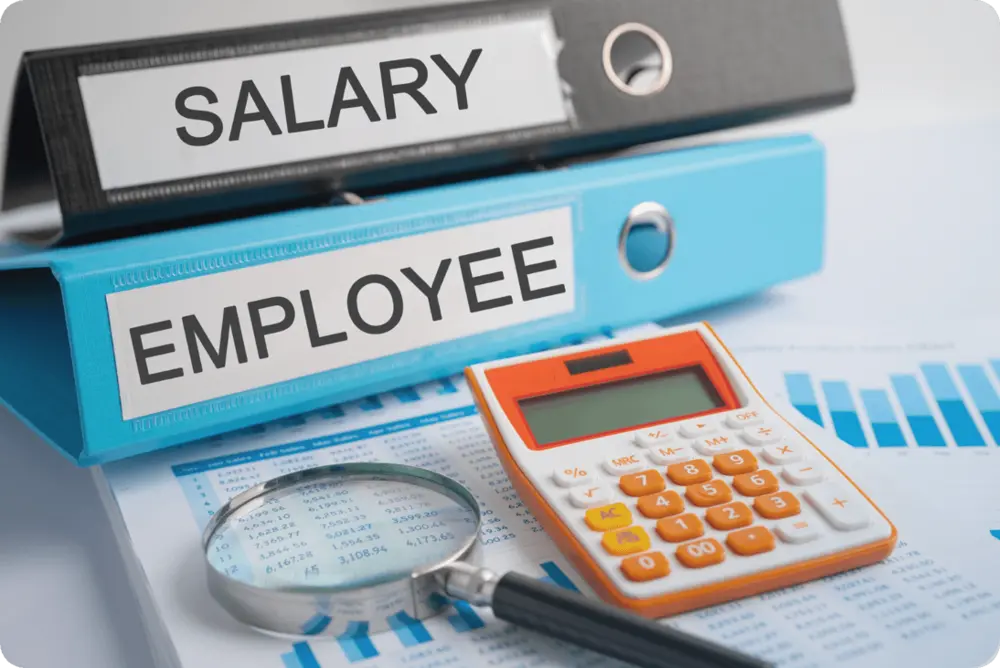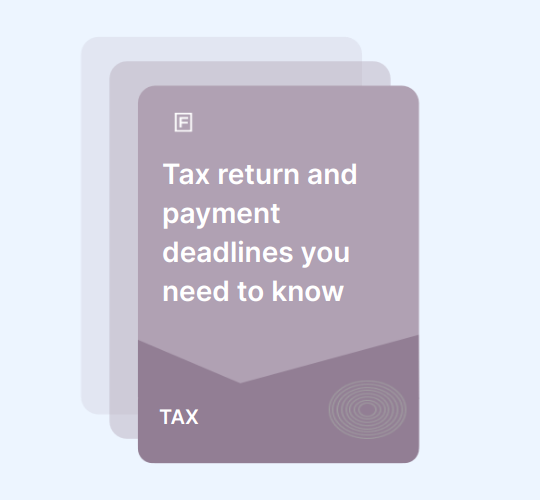

P60 Form
Curious about what a P60 form is and how to acquire one? Here, we'll deep dive into the importance and purpose of the P60 form. Whether you're an employee or an employer, understanding the P60 form is crucial for financial management and tax compliance.
Curious about what a P60 form is and how to acquire one? Here, we'll deep dive into the importance and purpose of the P60 form. Whether you're an employee or an employer, understanding the P60 form is crucial for financial management and tax compliance.
What is a P60? What Does P60 Mean? P60 Meaning
As a self-employed person or small business owner, it can be challenging to understand the various HMRC terms or forms you require.
Here's the low-down on the P60, so you'll get clear on the basics, and understand what's the right approach you should take whether you're a freelancer, contractor or employer.
A P60 is a statement or end of year certificate issued annually to employees in the United Kingdom by their employers. It indicates the total income earned and the taxes paid during the tax year, typically from April 6th to April 5th of the following year. It also indicates the amount you've paid in PAYE income tax and National Insurance contributions.
What does a P60 Look Like?
Have a look at the below sample P60 form. It is a blank P60 form which required to be filled by employers:

Image source: gov.uk
What is a P60 For?
The P60 serves as proof of the amount of tax you've paid on your income throughout the tax year. This certificate is crucial for various financial purposes, including applying for tax refunds, proving your income, and completing self-assessment tax returns.
How to Get a P60 from HMRC
If you are an employee, your employer is responsible for providing you with a P60 by the end of the tax year (April 5th). Your employer may send it electronically or as a hard copy. You can also get your P60 information online by creating an HMRC personal tax account.
If you have switched your job during the tax year, your current employer will provide you with the P60 form at the end of the year. In that case, your previous employer will issue a P45 form having details of your earnings and tax status until you have left the previous company.
What Does a P60 Show?
A P60 provides a comprehensive overview of your financial activity for the tax year. It includes details such as your total earnings, deductions, National Insurance contributions, tax code, and the amount of tax paid.
3 Reasons Why You Need a P60 Form
Apart from providing a record of important information (such as the amount of tax you've paid), the form is also a proof of income, and you may be required to provide the P60 in certain cases.
These include:
1. Applying for a Loan or Mortgage
A mortgage broker or bank will want to see consistent income after tax to assess what level of risk they are willing to accept by providing you with a mortgage and how much you can afford to repay each month.
If you're self-employed and need to apply for a mortgage, check out our comprehensive guide on self-employed mortgages and how to get one.
2. Claiming a Tax Refund
How can you claim a tax refund without a record of tax paid? With a P60 form, you'll be able to show your level of income and claim a tax refund.
This will help you claim back any overpaid Income Tax or National Insurance. This could happen if you've switched jobs and previous employers were calculating your tax.
3. Applying for Tax Credits
You'll need to show your income if you're applying for anything means-tested, such as tax credits.
Refer to the UK government’s resource on how to claim tax credits for further information.
4 Reasons You Won't Have a P60
1. Being Self Employed
As a self-employed individual, you aren't part of a PAYE scheme, so you won't obtain the P60 form.
You're required to file your Self Assessment tax return annually to show your income though.
2. Employed vs Self Employed
You'll get a P60 from your employer but are also required to file your Self Assessment tax return.
That's because your P60 only indicates your income and deductions from your job and not the income you obtain as a self-employed person.
3. Sole Traders
As a sole trader, you aren't drawing a salary, so you're not required to issue yourself a P60.
However, you'll need to issue the form if you have employees, or are drawing a salary from other employers.
4. Multiple Jobs
If you held jobs with different companies between April 5th then you'll need a P60 form from each company. You should ensure that a previous employer has issued your P60.
P60 Form with Your Own Limited Company
If you're drawing a salary from your limited company, you'll need to issue yourself a P60 form.
And if you have employees, you'll need to generate P60 forms for your staff. These forms should be handed to them by 31st May.
If you are working as a contractor, then you should complete a Self-Assessment to calculate how much you've earned.
If you need help with your Self-Assessment, we can help you with your filing which will need to be done by January 31st 2024.
P60 with an Umbrella Company
If you're a contractor working through an umbrella company, you'll receive a P60 as the umbrella company is considered an employer.




%20(1).webp)













![How to Get Unique Taxpayer Reference (UTR) Number [2024]](https://assets-global.website-files.com/5d71eeb2a19ee03e3430f50f/659fb7a03eeb8100f53a6538_unique-taxpayer-reference-utr-number.png)


![Complete UK VAT Registration Guide [2024]](https://assets-global.website-files.com/5d71eeb2a19ee03e3430f50f/6603702c1bc2d47d2e92c0fb_vat-registration-guide.webp)









